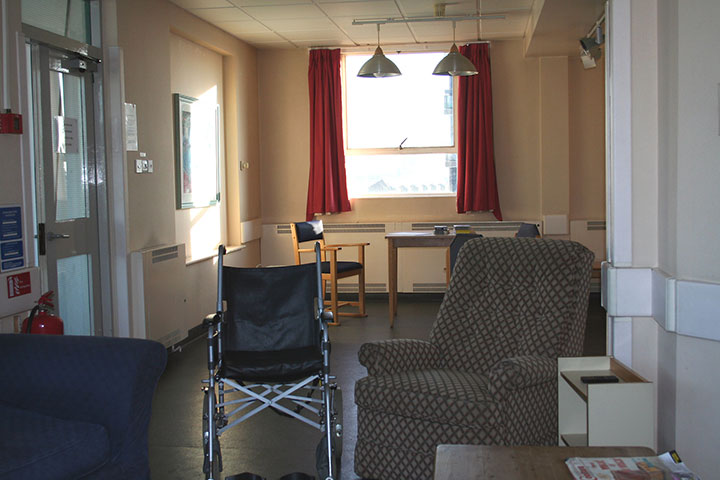Updated May 2025
When questioned about what loss in life they feared or found most devastating, most seniors give the selfsame answer. It’s not what you might expect: the loss of a job or the death of a parent, spouse, partner, or sibling. It’s the loss of their own independence.
Exploring the Issue
Several years ago, Richard Caro, a former officer in several tech companies and holder of 24 patents, along with a couple partners, formed Tech-enhanced Life with the broad aim of “improving the quality of life of the aging and their families”—often through the innovative use of technology.
To that end, Caro introduced the Longevity Explorer Project, in which groups of older adults are encouraged to gather, both face-to-face and virtually, to discuss their needs and to put products offered to meet those needs to empirical tests. In the first two years of its existence, five circles of 200 Longevity Explorers, mostly ages 70 to 95, participated in more than 100 meetings to discuss their views and try out everything from newfangled medical alert systems to digital clocks for those with visual limitations.
But recent meetings of four of the Explorer groups focused on a topic less technical and closer to the bone: independence. Caro framed the discussions with two probing questions:
- What gets in the way of staying independent?, and
- What are you scared of that could rob you of your independence?
As an introduction, Longevity Explorers were reminded of the clinical definitions of independent living—the alphabet soup of ADLs and IADLS.
ADLs are the “activities of daily living”—the basic ins and outs of a human life, including the six acts of getting out of bed, going to the toilet, bathing, dressing, grooming, and eating.
IADLS, or the “instrumental activities of daily living,” are actions related to independent living, such as preparing meals, managing money, shopping for groceries and personal items, performing housework, and using the telephone.
People who have full command of both ADLs and IADLs are deemed to be “fully independent”—at least from a clinical standpoint.
Different Folks, Different Strokes
The Explorers, however, quickly tossed aside the acronyms. When asked for their own definitions of independence, most said they equated it instead with autonomy and self-determination.
Some raised the topic of driving as a prime example. While a number of people in the Explorer groups said they had to restrict or give up driving—arguably, one of those IADLs—they still felt they could live independently as long as they were able to access and afford an alternative to driving such as taxis, ride-sharing, mass transit, or paratransit. They felt a true loss of independence only when they had to rely on another person to find and arrange their transportation.
Another truth that quickly became clear: there is no one-size-fits-all definition of independence. For example, one woman explained that there are levels of independence: to some people, independence means “that you have to do everything like you did 20 years ago—and do it yourself.” But other people, she noted, even those in assisted living, feel that they’re still independent “in terms of their mind and their thinking” as long as they can make choices, such as deciding what they want to eat; they don’t have to be mobile.
What Gets in the Way?
Asked what gets in the way of staying independent, Explorers burst out with a number of ready reasons:
- Money—including enough to pay for the help they might need to stay where they want to stay and to grow old comfortably and keep up with doing social activities
- Physical health—especially the ability to avoid complications that may follow from falling
- Attitude—as in a “good attitude for life in general” and to desire to remain socially active
- Lack of attentive relatives to act as caregivers, and
- Willpower—that is, the basic will to be independent.
One gentleman chimed in with a real life illustration: “I had a personal experience with open heart surgery two years ago and feeling like I couldn’t do anything. I had to force myself to get up and out on the street everyday,” he said. “And a week ago, I had a total disaster: combined heart and lung failure. I saw three doctors in three days. But I changed medicines and because of willpower, I’m still here.”
So the Explorers underscored that willpower is a key component in staying independent—as is money.
What Do You Want to Avoid?
When asked what they worried about or what scares them with respect to staying independent, the Explorers again had an easy time coming up with a list. It included:
- Helplessness
- Having family members take over when that is not wanted
- Being lonely—increasingly common as you outlive friends and find it harder to make new ones
- Decreasing energy levels—making it hard to accomplish all that needs to be done in a day, including those looming activities of daily living
- Being a burden to family members, and
- Getting dementia.
It was noteworthy that the group laughed often during this tough discussion of an issue close to their hearts, teasing one another gently. Most important in being able to maintain independence, they agreed: keeping a sense of humor.
